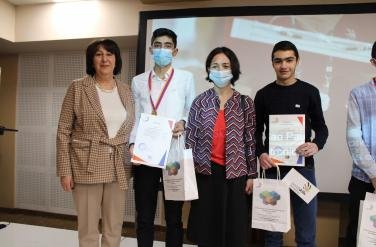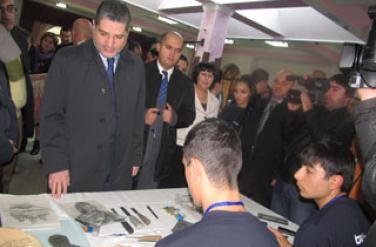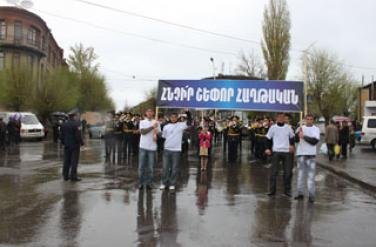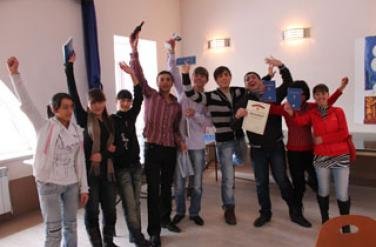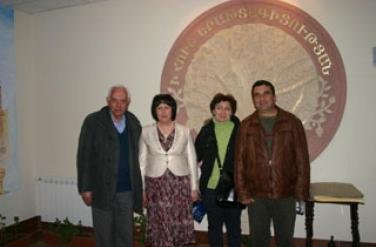Meaning of the Feast of the Holy Translators



An open lesson was held dedicated to the Feast of the Holy Translators on the 31st of the October in the first course of “The computer operator” at the Gyumri Craftsman State School N4. The aim of the lesson was to get to know about that feast, to value the translation movement as a foundation of developing knowledge, science and language. The lesson was organized in an interesting way. The students showed political and cultural life of the 5th century with theatrical plays pointing out the invention of the Alphabet as a way of salvation. The students presented the first translators, their deeds, mentioned their role in education and culture progress. Talking about the translation movement they mentioned that the translation of “Bible” by Mestrop Mashtots and his pupils was still considered “the queen of translations”. The translation movement also loosens the impact of foreign churches and political aims of supporting countries. The fifth century translators created a unique culture from nothing, which couldn't be confused with any other foreign culture. Due to them the nation got together over one belief and resists all the difficulties. During the open lesson the students also spoke about the beginning of independent literature, quoting the words of Khorenatsi, Yeghishe, Buzand and other historians who haven't lost their importance during the time and become as a leading guide for the next generation. Even nowadays the translation spirit and skills of the fifth century is displayed in the works of modern translators. The lesson was summed up with the conclusion that mother tongue and Christian belief became the pillars in nation preservation on which nowadays free, independent Armenian culture raised and blossomed.
The teacher of Literature Q. Grigoryan
